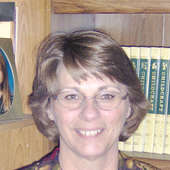Examining the blessings of atheism
The headline caught my eye: "The Blessings of Atheism."
What could those blessings be? I wondered as I clicked on the link and proceeded to read the op-ed piece from the New York Times written by Susan Jacoby, author of the forthcoming book "The Great Agnostic: Robert Ingersoll and American Freethought."
Among the blessings? Her assertion that in the face of suffering, the atheist doesn't have to ask why an "all-powerful, all-good God allows such things to happen," thus eliminating the theodicy problem. (Theodicy: the vindication of divine goodness and providence in view of the existence of evil.)
Jacoby was addressing the recent tragedy at Newtown, Connecticut, and a subsequent conversation with a fellow journalist where Jacoby expressed her exasperation with the "endless talk about faith in God as the only consolation" for those who are left to mourn 20 first-graders and six educators. She notes that atheists cannot find solace in the idea that the dead children are now angels in heaven. As a point of clarification for Jacoby and to those quick to turn to this reasoning for comfort, there is nothing in Scripture that indicates that dead children ever become angels, in heaven or elsewhere. Angels aren't former humans. They are created beings, created to be angels. That aside, we do know from the lips of the Christ that, "... the kingdom of heaven belongs to such as these," (Matthew 19:14) and what sparse comfort we can gain from knowing this must needs be sufficient, today. No evil, no harm, no pain, can ever touch them again. Sparse comfort for my mother's heart, which constricts at the thought of the burden these mothers and fathers must now bear, but comfort, nonetheless.
Because the atheist is freed from the theodicy problem, he is "free to concentrate on the fate of this world ... without trying to square things with an unseen overlord in the next," Jacoby notes. She then introduces Robert Green Ingersoll (1833-1899), who is known for his defense of agnosticism and was of the opinion that there was no difference between atheism and agnosticism because it was impossible for anyone to know whether God existed or not. Ingersoll is the recipient of Jacoby's admiration because he was unapologetic in his agnosticism, even offering words of comfort at the graveside of a friend's child, saying in 1882, "They who stand with breaking hearts around this little grave, need have no fear. The larger and the nobler faith in all that is, and is to be, tells us that death, even at its worst, is only perfect rest ... The dead do not suffer."
This is where I have my strongest objection to the atheist/agnostic mindset. If, in fact, the dead do not suffer, which is balm to the parents of the slain children, to be sure, then what of justice? If there is no "unseen overlord" then 20 first graders and seven adults, including the shooter, went to "perfect rest." Carrying this analogy farther, we would have to accept that Hitler now knows perfect rest, as does Mao, Stalin and too many others; including all who have escaped man's version of justice and whose sin is known only to God, and to their victims.
Yes, there is the problem of theodicy. It is beyond our understanding. When Jacoby was all of seven, and her mother had nothing concrete to offer in the face of the suffering of a 9-year-old boy afflicted with polio except that the "priest would say God must have his reasons, but I don't know what they could be" the seed of atheism was planted. Nurtured by the boy's continued suffering in an iron lung and his death at an early age, the seed took root and Jacoby hasn't looked back.
The stated purpose of her treatise is to encourage other atheists and agnostics to speak up, "take responsibility for whatever humans are responsible for ... demonstrate that atheism is rooted in empathy as well as intellect."
I accept her challenge to speak up, although that was not her intent.
This I know -- you can find no comfort, no peace, no rest -- if you do not know the Giver of all.
Jacoby's mother, for all her good intent, failed to fully know the One who knows. She settled for the traditions of men, insufficient as always, perhaps more so now than ever before.
Take your questions to the One from who you dare to demand answers. If you will seek the truth, he will answer you.
Even at the tender age of seven, presenting the same scenario to my own mother, I would have learned that even though I could not, then or now, comprehend the mind of God, I could rest and take comfort in his known and knowable goodness; his known and knowable mercy; and his known and knowable justice.
"Though he slay me, yet I will hope in him." Job 13:15 (NIV)
I don't have all the answers, but I know and love the One who does. Let's walk in his love and discover him together.
Dawn
Read Jacoby's full article here: http://www.nytimes. com/2013/01/06/opinion/sunday/the-blessings-of-atheism.html

